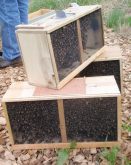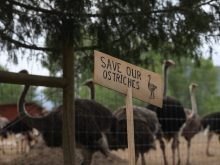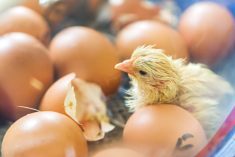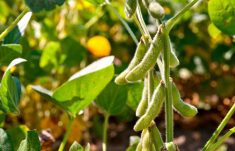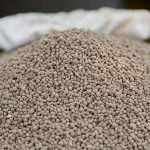When it comes to grain trade, systems that provide transparency and choice for customers will likely continue to be important as more gene-edited crops hit the market.
“We’re working proactively on some of these approaches,” said Krista Zuzak, director of crop protection and production with Cereals Canada.
On May 3, federal Agriculture Minister Marie-Claude Bibeau announced updated guidance from the Canadian Food Inspection Agency. The decision put most gene-edited (GE) seed on the same regulatory level as conventionally bred varieties.
Read Also

‘Millions will die’: Foodgrains Bank faces $2.7B federal funding threat
Foodgrains Bank warns $2.7B aid cut triggers a humanitarian crisis, risking global hunger relief and 40 per cent of its funding.
This puts Canada in a similar camp with the U.S., China, Japan, the U.K. and several other countries.
However, not all of Canada’s trading partners are as open to GE foods. The European Union is in the process of clarifying its policy, but now lumps GE crops with traditional GMOs, which are not well accepted there. Organic buyers ban them completely.
The Canadian organic sector is concerned that more GE crops in rotation will increase the risk of organic crops becoming contaminated, according to Tia Loftsgard, executive director of the Canadian Organic Trade Alliance. If the sector is not able to guarantee its products are free of GE content, it could lead to trade breakdowns.
Loftsgard pointed to an incident in 2018 when GM wheat, which is not in commercial cultivation, was found in Alberta. Japan and South Korea temporarily suspended wheat imports from Canada following the discovery.
A similar incident occurred in 2009 when the EU halted trade of Canadian flax after GM material was detected in a load.
“We do flag that, and we do see that that could possibly be an issue for some markets,” said Zuzak.
She said the industry has seen an uptick in questions from foreign buyers about Canada’s policies on gene editing. The tone is mostly curious, with questions largely centered around what approach Canada will take. Buyers want to know what to expect so they can communicate this to customers, she said.
“It’s very much an information gathering stage.”
Cereals Canada wants systems in place that will allow market choice, according to Zuzak.
Some of those systems are already in place, said Krista Thomas, vice-president of trade policy and seed innovation with the Canada Grains Council.
For instance, grain handlers can supply customers with organic or conventional product, GM and non-GM, and many other characteristics. Exporters can keep types of grain separate and ship and receive them according to customer needs.
Grain companies may also be able to use grower contracting to source specific characteristics, including non-GE.
“That’s a concern for all farmers in Canada. All farmers need to know if their seed was developed using gene editing or not so they can pass that information along,” Thomas said.
In a news release, Soy Canada said the industry has “excelled at meeting diverse customer needs” including organic, non-GM, GM and identity-preserved soybeans. It also said that meeting specific needs “remains an important priority for the industry.”
“Our customers know that we excel at providing a diverse range of products,” Soy Canada’s executive director Brian Innes said in a release. “We’re committed to continue providing customers what they want once we commercialize soybeans created using gene editing.”
Transparency moves
The federal government has announced initiatives designed to encourage crop developers to be transparent about their practices. This includes the Canadian Variety Transparency Database and a transparency steering committee.
However, transparency isn’t mandated, and that will be a problem for the organic sector, Loftsgard said.
“Without it being mandatory to report all GE, I think that they’re pretty futile,” she said. “All it takes is one GE-wheat leak, as we’ve already experienced, in order to affect all trade.”
A best management guide developed by Seeds Canada and CropLife Canada recommends that developers participate in voluntary transparency mechanisms.
“Each developer will make their own choices when it comes to marketing information. Their choice to specifically market a product as gene edited, especially if their product is not considered novel, will depend on the specific edit and resulting trait,” a Seeds Canada spokesperson said in a statement to the Co-operator.
“Our members support the Canadian Variety Transparency Database and are committed to ensuring it is complete and accurate,” the spokesperson said. “We encourage our members to remain in contact with the grain supply chain and national commodity associations so that our entire sector is aware of what products are entering the market.”





